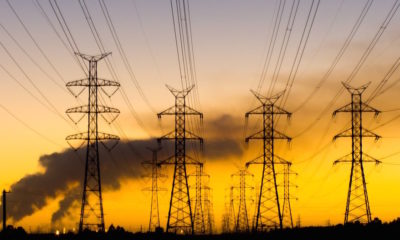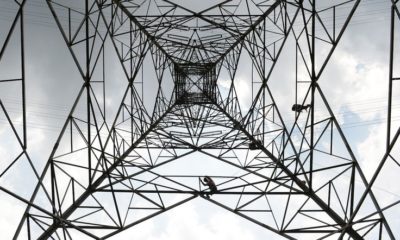- Discos Need $10bn Investment to Boost Power Distribution –AFD
The 11 power distribution companies operating in Nigeria need $10bn worth of investments to efficiently distribute electricity across the country over a five-year period, the French Agency for Development has said.
AFD disclosed this in a report it presented to operators in the power sector in Abuja on Monday, adding that the $10bn investment would involve new investors and would deliver quality electricity services over the projected period.
Findings and recommendations contained in the report were presented at a conference organised by AFD on Nigeria’s power sector challenges, as the agency stated that it carried out the in-depth study with the support of the European Union in order to contribute and design a way forward for the industry.
“According to the best estimates, the 11 Discos operating in Nigeria would need more than $10bn in five years. Also, innovative financing solutions must be devised, possibly involving new players,” the study, which was done by a consultancy firm, AF Mercados, under the AFD’s Technical Assistance Programme, stated.
In a presentation that was made at the conference, the Team Leader of Capacity Building and Technical Assistance Programme, AF Mercados, Jose Guerra, said the aim of the study was to help empower decision-makers in making the right decisions in Nigeria’s power sector.
The French agency noted that the AFD along with other development institutions involved in supporting the power sector in Nigeria had been witnessing the stall of investments in the sector since it was privatised.
It stated that this had led to the build-up of a major bottleneck, constraining access to electricity for the public and the economy, driving up the cost for users who now resort to diesel-powered generation.
It said the failed attempts at financing Discos led the Federal Government and its development partners to think out ways of breaking the vicious cycle that started from an initial infrastructure gap and led to today’s severe liquidity crisis with a revenue shortfall that is over $3bn.
The AFD report traced causes of the shortfall in the sector to the lack of a cost reflective tariff, customer dissatisfaction and lack of performance in the power sector in general, as these had led to a shutdown of access to finance.
In conducting the study, AFD said Mercados worked closely with stakeholders in the sector including the Discos since mid-2017, following the guidelines of the Performance Improvement Plans released by the Nigerian Electricity Regulatory Commission.
The study also highlighted key actions to be taken to solve the liquidity crisis in the sector such as segmenting the electricity market into manageable urban areas, rural areas, and potential eligible customers.
The other segmentations were informal settlements in urban areas and peri-urban areas, and the difficult to manage rural areas.
The report further talked about analysing the cost and revenue structure of the Discos on the various segments, as well as appropriate data that would help in valuing the needed investment linked to key performance targets to help in forming the PIP of each Disco as required by NERC.
The development partner, however, emphasised that there was a need to set up consistent legal and regulatory frameworks that would attract investors to sustain the power sector.
The study noted that there was a need for more investments rather than interventions by the Central Bank of Nigeria in the electricity market.
It noted that N600bn had been earmarked as the second tranche of the CBN’s Nigeria Electricity Market Stabilisation Fund starting this year or by 2020.

 Billionaire Watch3 weeks ago
Billionaire Watch3 weeks ago
 Startups4 weeks ago
Startups4 weeks ago
 News4 weeks ago
News4 weeks ago
 News4 weeks ago
News4 weeks ago
 Bitcoin4 weeks ago
Bitcoin4 weeks ago
 Naira4 weeks ago
Naira4 weeks ago
 Forex3 weeks ago
Forex3 weeks ago
 Treasury Bills4 weeks ago
Treasury Bills4 weeks ago

























